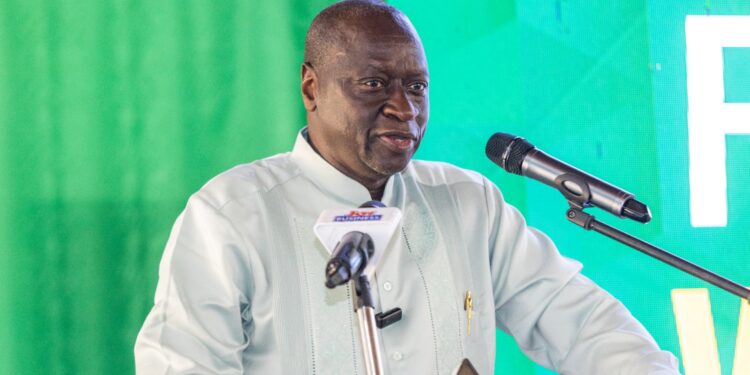World Bank Vice President Visits Kpong Irrigation Projects to Assess Impact and Resilience Efforts
World Bank Vice President for Western and Central Africa, Ousmane Diagana, visited the Kpong Irrigation Scheme (KIS) and the Kpong Left Bank Irrigation Scheme (KLBIS) Agropole on Thursday, January 9, 2025.
The visit underscores the World Bank’s commitment to bolstering agricultural resilience and productivity in Ghana.
The visit follows the successful completion of the Ghana Commercial Agriculture Project (GCAP), which positively impacted 14,264 beneficiaries, 37% of whom were women. The project’s accomplishments laid the foundation for the ongoing West Africa Food System Resilience Project (FSRP).

Addressing Ghana’s Irrigation Challenges
Ghana has significant irrigation potential, with estimates suggesting 360,000 to 1.9 million hectares of irrigable land. However, less than 3% of cultivated land is irrigated, limiting agricultural resilience and productivity.
Through GCAP, the World Bank invested $62 million in modernizing and rehabilitating irrigation and drainage infrastructure for KIS and KLBIS, both located along the Volta River.
These schemes currently support 7,391 hectares of irrigated land, benefitting 2,835 smallholder farmers – 41% of whom are women – alongside several commercial farmers.

Impact of GCAP Interventions
The main crop cultivated on the schemes is rice, with average yields increasing from 4.5 MT/ha in 2017 to 5.5 MT/ha, thanks to GCAP’s interventions.
The project enhanced water security, improved climate-resilient infrastructure, and strengthened farmers’ adaptive capacities, making significant strides in building climate resilience.
FSRP’s Expanded Focus
Building on GCAP’s achievements, the ongoing second phase of the West Africa Food System Resilience Project (FSRP-2), approved in 2022, aims to expand irrigation rehabilitation and modernization efforts.
FSRP-2 supports Chad, Ghana, and Sierra Leone to enhance preparedness against food insecurity and improve food system resilience.

The Ghana component of FSRP, supported by an initial $150 million IDA funding, became effective in June 2023 and is scheduled to run until September 2028.
It aims to consolidate GCAP’s impacts by increasing productivity, promoting climate resilience, and reaching more smallholder farmers.
Mr. Diagana’s visit reaffirms the World Bank’s dedication to sustainable agricultural development and its efforts to address food insecurity in Ghana and the broader West African region.







